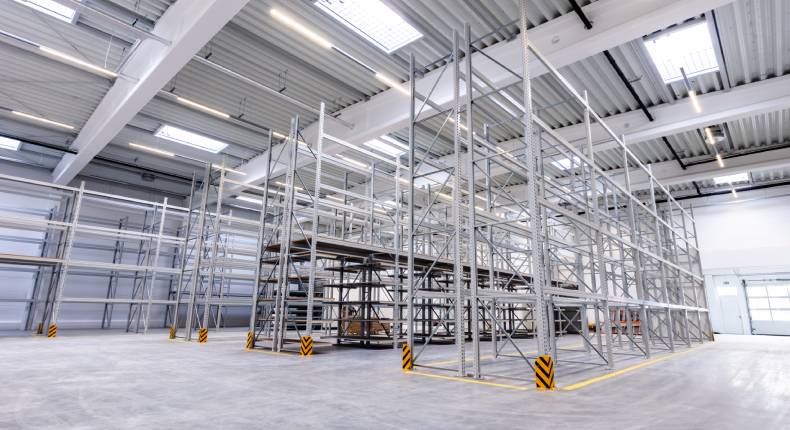The management of goods in transit is a complex task that requires specific solutions to optimize time and costs. One of the key elements in the world of logistics and international trade is the Temporary Storage Warehouse (TSW). In this article, we will explain in-depth what an TSW is, its characteristics, how it works, and the advantages it offers within the Spanish legal framework.
What is a Temporary Storage Warehouse (TSW)?
A Temporary Storage Warehouse (TSW) is a facility authorized by the competent customs authority where goods can be temporarily stored under customs control until they are assigned to a specific customs regime.
It is a key tool in supply chain management and international trade, as it allows the retention of imported goods without the immediate payment of duties and taxes.
Characteristics of an TSW
Temporary Storage Warehouses (TSW) must meet certain requirements for their operation, which is why they need to have specific characteristics. These characteristics ensure that operations are carried out safely and in a controlled manner, facilitating customs management and temporary storage of goods.
- Customs authorization: They need a license granted by the competent customs authority.
- Control and security: They must have security and control systems to prevent theft and ensure the integrity of the goods.
- Movement records: It is mandatory to keep a detailed record of all goods entries and exits.
- Adequate infrastructure: The facilities must be suitable for the type of goods they will store.
When is an TSW used?
Additionally, TSWs are fundamental in various logistics circumstances. Their use allows for more flexible and efficient management of goods in transit. Here are some common situations where an TSW is utilized:
- Temporary importation: When goods are in transit and their final destination has not yet been decided.
- Customs regularization: To regularize the status of imported goods while customs procedures are completed.
- Consolidation and deconsolidation of cargo: In logistics operations to group or separate goods from different origins or destinations.
- Customs inspection: When a detailed inspection of goods is required by customs.
How does a Temporary Storage Warehouse work?
The operation of a Temporary Storage Warehouse follows a strict procedure regulated by customs law, ensuring that all goods are managed in accordance with current laws and regulations.
How long can goods stay in an TSW?
Spanish regulations state that goods can remain in an TSW for a maximum period of 90 days. This period can be extended in exceptional cases and under justified circumstances, always with the authorization of the customs authority.
Properly managing this period is essential to avoid penalties and ensure compliance with all customs obligations.
Types of operations allowed in an TSW
In an TSW, various operations can be performed for the efficient management of goods. These operations not only help maintain control and security of the stored products but also facilitate the preparation of goods for their final dispatch. The main operations in an TSW include:
- Ordinary handling: Basic operations such as moving, sorting, and preserving goods. These activities ensure that goods remain in good condition during their temporary storage.
- Inspection and sampling: Taking samples and conducting necessary inspections by authorities or the operators themselves. These activities are necessary to verify the goods’ compliance with customs and quality regulations.
- Shipment preparation: Labeling and packaging operations to prepare goods for final dispatch. This includes load consolidation, repackaging, and other activities that facilitate the efficient shipment of goods to their final destination.
Who controls this type of warehouse?
The control of TSWs is carried out by the customs authority, which oversees compliance with the established regulations and procedures. Additionally, TSW managers must keep a detailed record of all activities and be available for any customs inspection.
What happens when the storage expiry date approaches?
When the authorized storage period in an TSW is nearing its end, it is crucial for operators to take preventive actions to avoid penalties and legal complications associated with the expiration of the authorized period. Several options are available for managing goods before the storage period expires:
- Release for consumption: This option involves paying the corresponding duties and taxes to allow the definitive release of the goods. Once paid, the goods can be released for distribution and sale in the local market.
- Re-export: This consists of sending the goods outside the European Union. This measure can be suitable for goods that will not be consumed in the local market and avoids the payment of customs duties and taxes.
- Change of customs regime: Goods can be assigned to another customs regime, such as a customs warehouse or free zone, providing an extension of the storage period under different conditions. This can be a flexible solution for companies needing more time to decide the final destination of their goods or to complete other customs procedures.
Obligations of the TSW
Managers of a Temporary Storage Warehouse have a series of responsibilities to ensure proper operation and compliance with customs regulations. Below are the main obligations they must fulfill:
- Regulatory compliance: Operators must ensure that all activities within the TSW are carried out in accordance with current customs regulations. This includes compliance with laws and regulations related to temporary storage and any other applicable legislation. Non-compliance with these regulations can result in severe penalties and the revocation of authorization to operate as an TSW.
- Security and control: It is mandatory to implement adequate security measures to protect the stored goods. This involves installing surveillance systems, alarms, and access controls to prevent theft, damage, and any illicit activity. Additionally, security protocols for personnel and emergency procedures for unforeseen situations must be established.
- Record and reporting: Managers must maintain detailed and accurate records of all entries, exits, and operations performed within the warehouse. These records must include information on goods identification, entry and exit dates, and any handling performed.
- Collaboration with customs: It is essential to facilitate inspections and controls by customs authorities. This includes providing access to the facilities, allowing the review of records, and cooperating in the physical inspections of goods.
Advantages of using a Temporary Storage Warehouse (TSW)
Here are some of the main advantages provided by Temporary Storage Warehouses (TSW) for companies:
- Operational flexibility: They allow greater flexibility in inventory management and goods flow. This flexibility translates into the ability to temporarily store products while the necessary customs procedures are completed or their final destination is decided.
- Cost savings: One of the main advantages of using an TSW is the possibility of deferring the payment of duties and taxes until the final release. This deferral significantly improves the liquidity of companies, as funds that would have been used for immediate payment of these costs can be used in other areas of the business.
- Logistics optimization: They greatly facilitate the consolidation and deconsolidation of cargo, optimizing logistics operations. This capability allows companies to group goods from different suppliers or destinations into a single shipment, reducing transportation costs and improving delivery efficiency.
- Security: Security is a priority in TSWs. These warehouses offer a high level of protection for goods stored under customs control. They are equipped with advanced surveillance systems, access control, and physical security measures that ensure the integrity of goods against theft, damage, and illicit activities.
In short, TSWs are necessary in modern logistics as they provide a flexible solution for the temporary storage of goods under customs control. They allow companies to handle imported products while completing the necessary procedures, providing a strategic advantage in inventory management and resource optimization.












